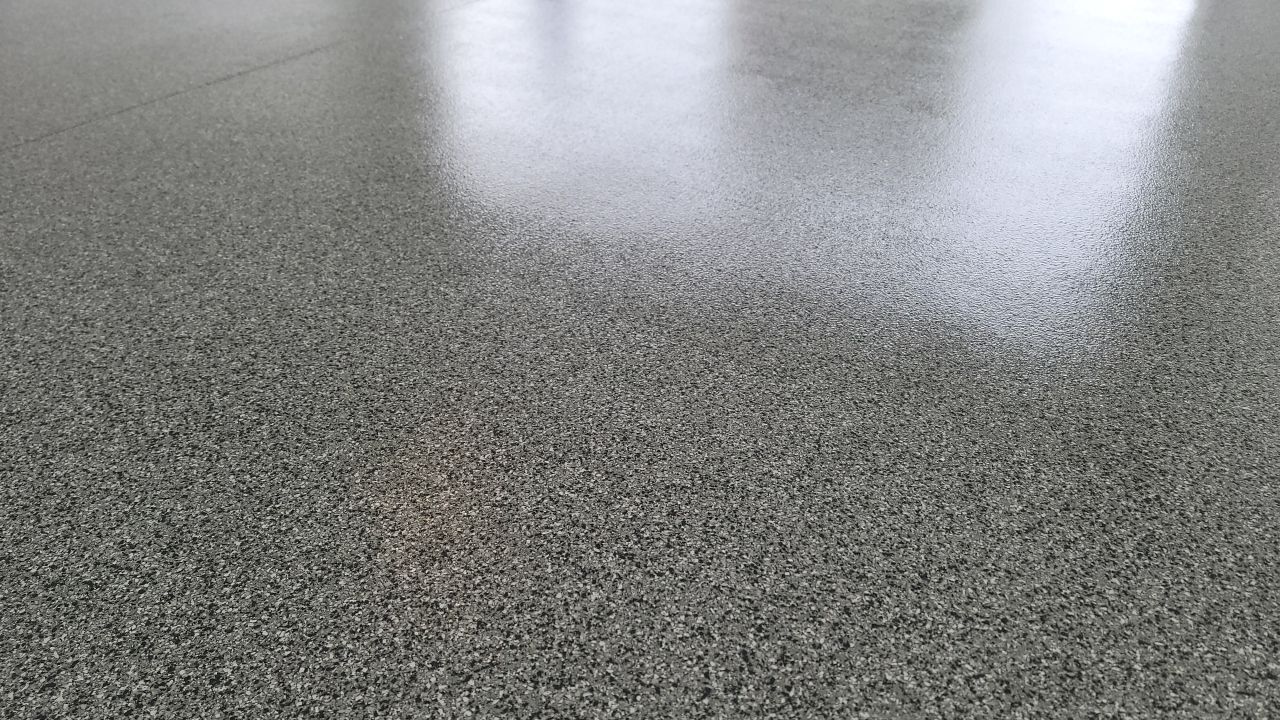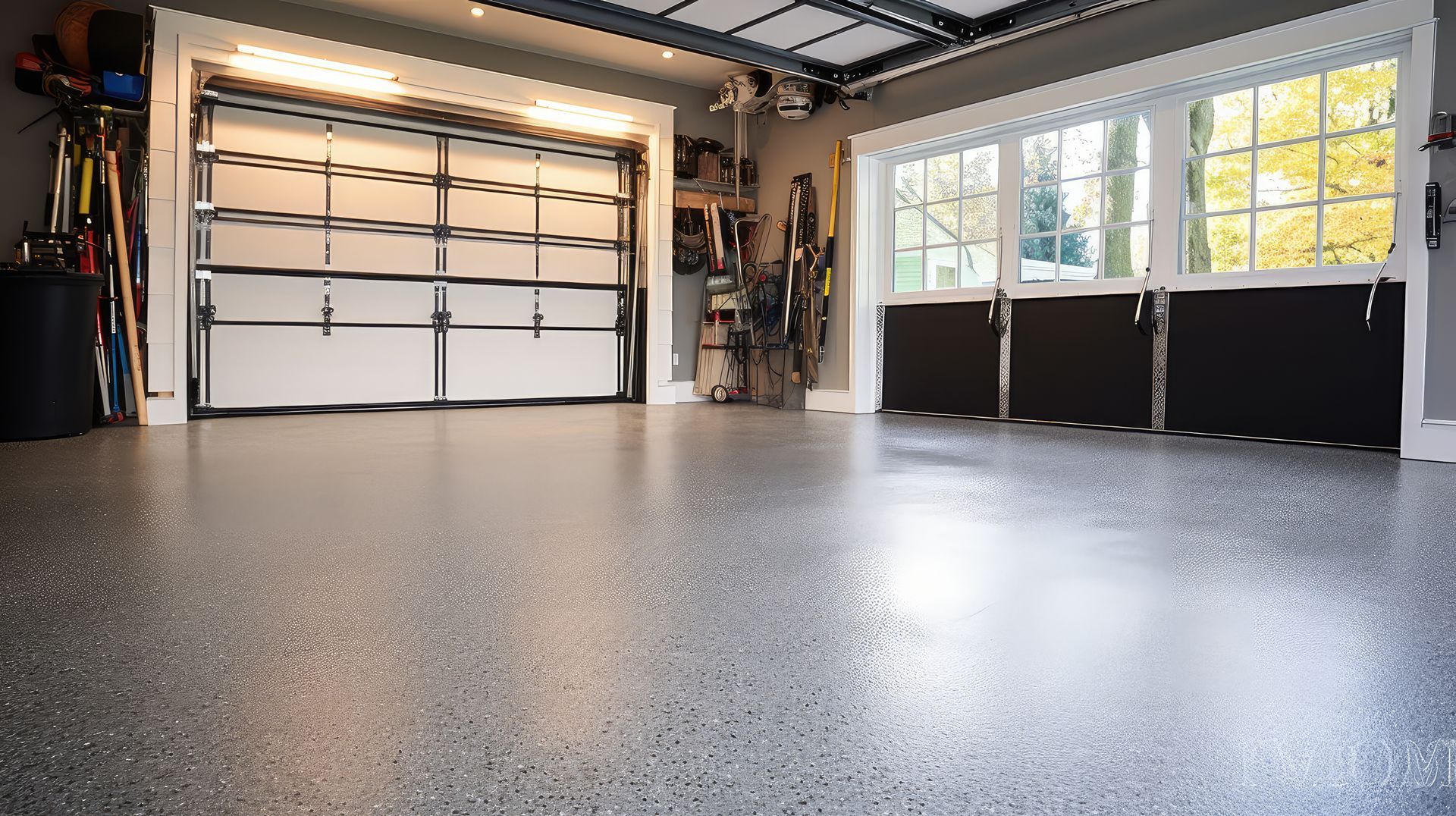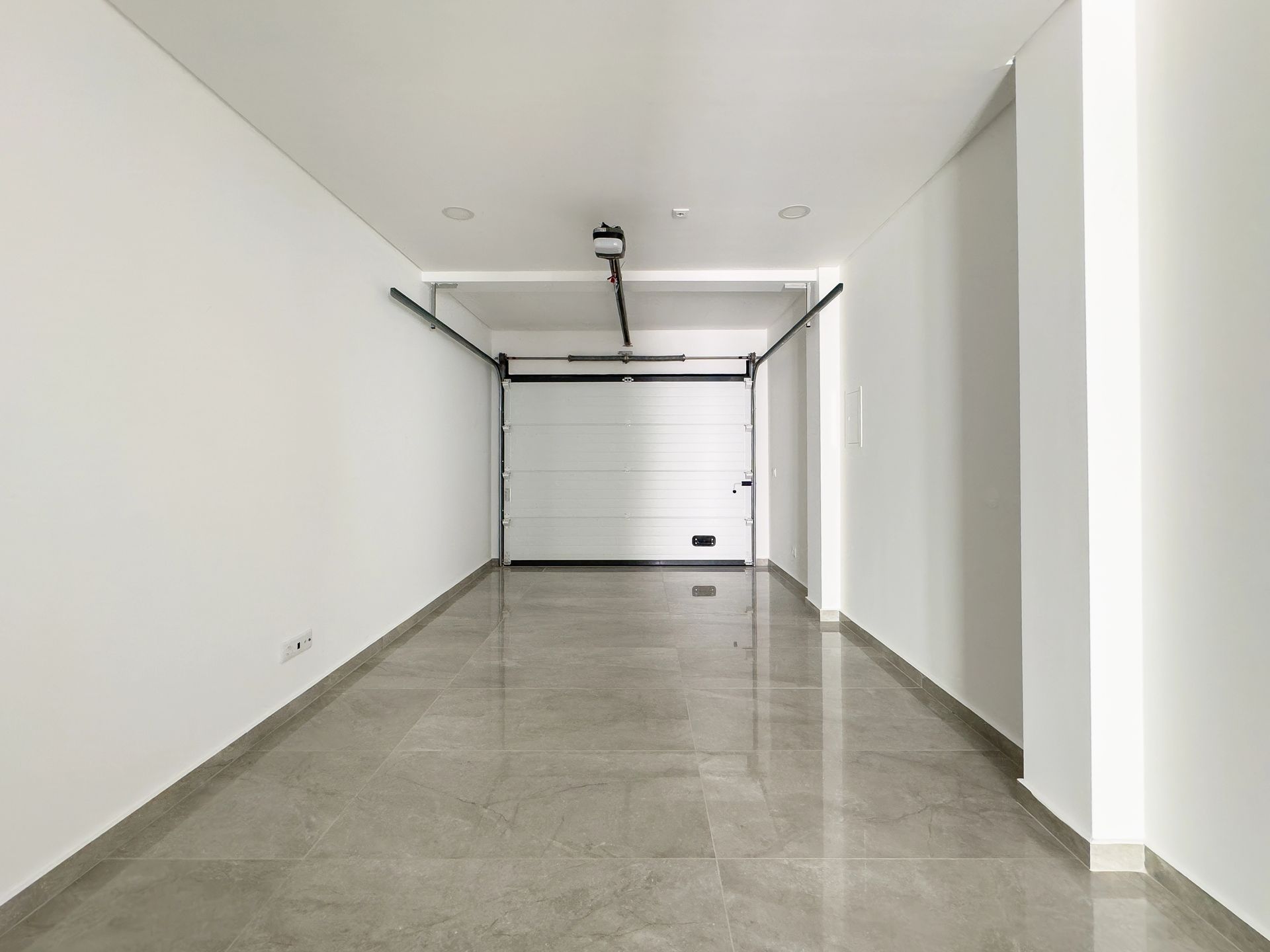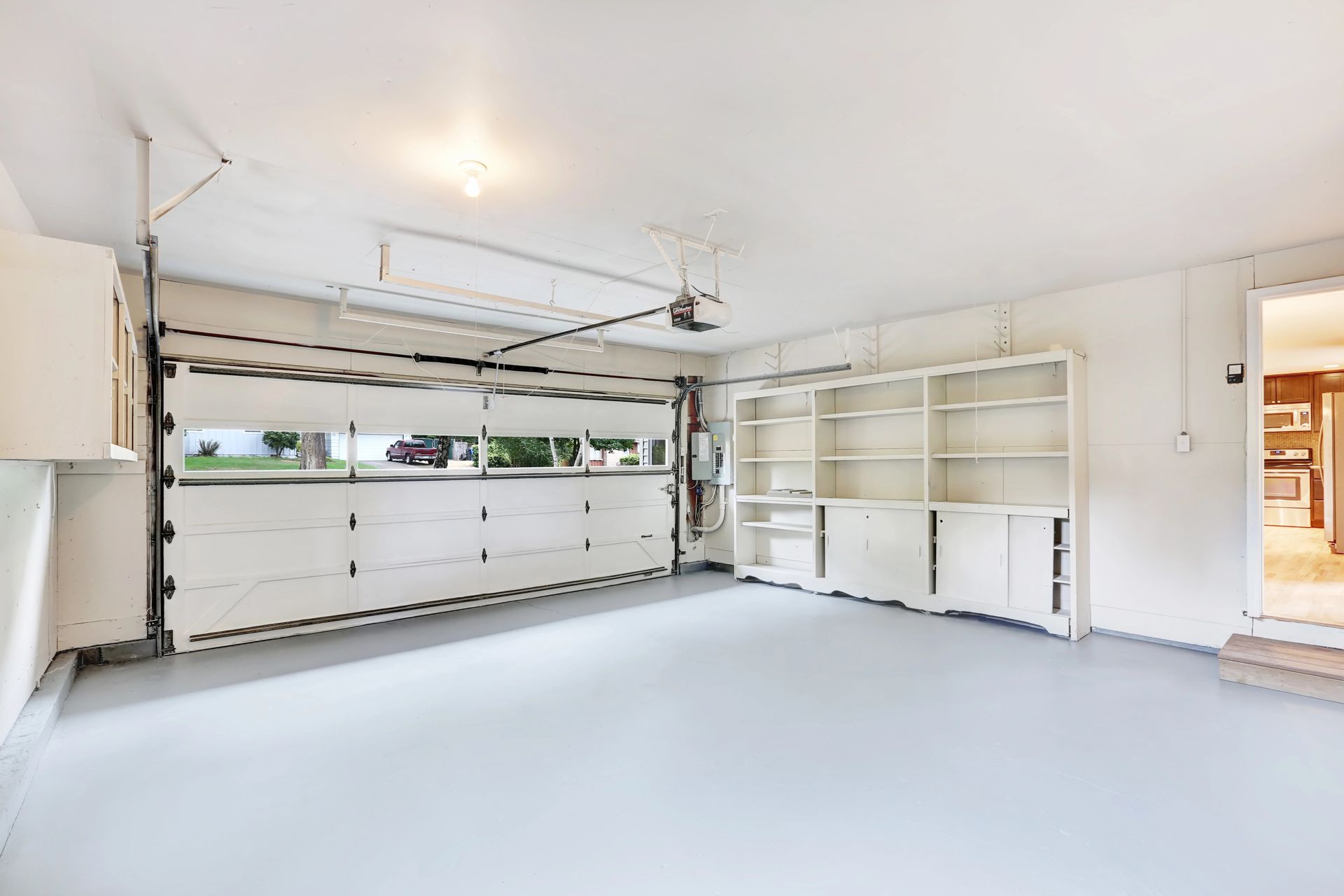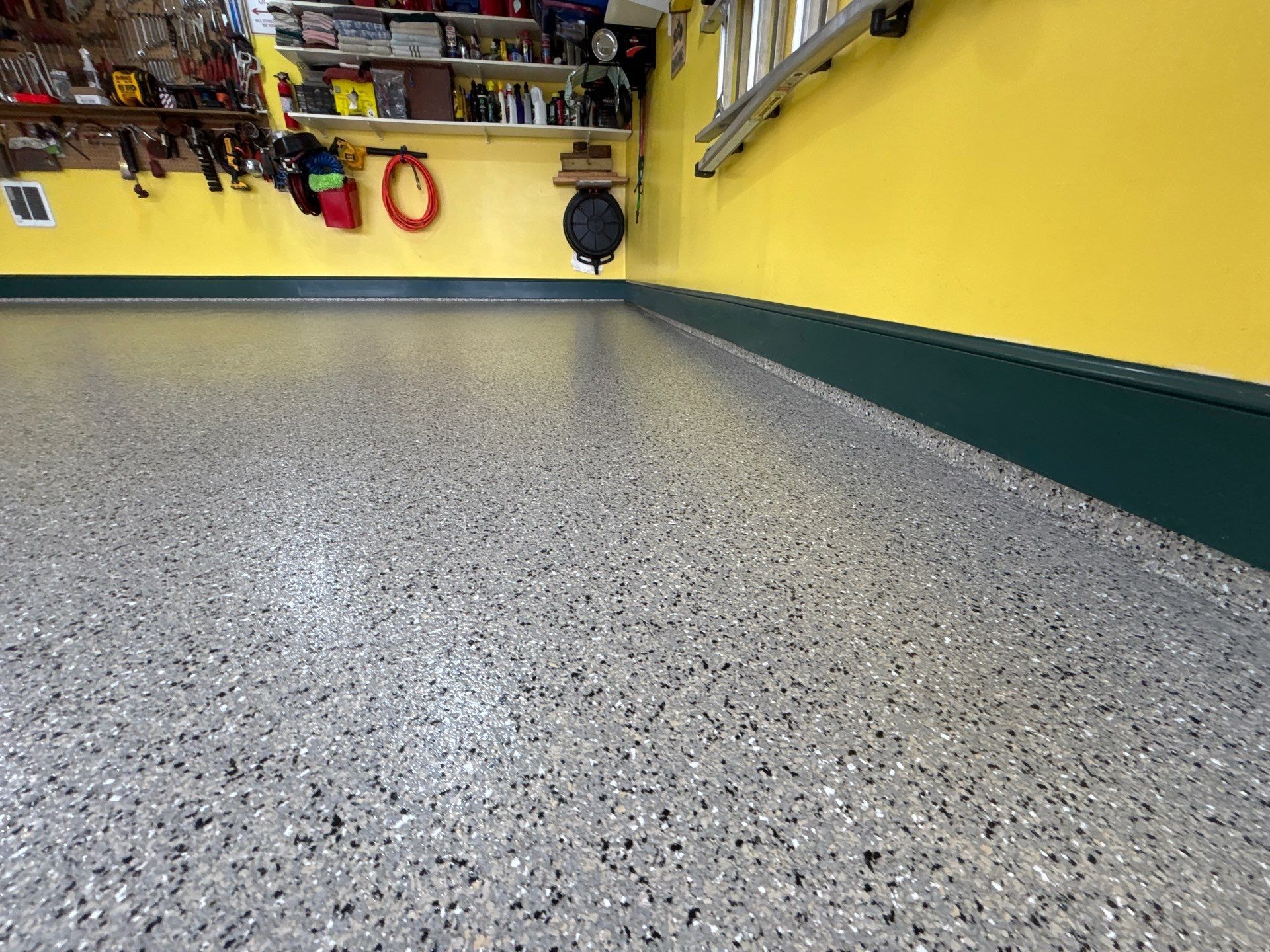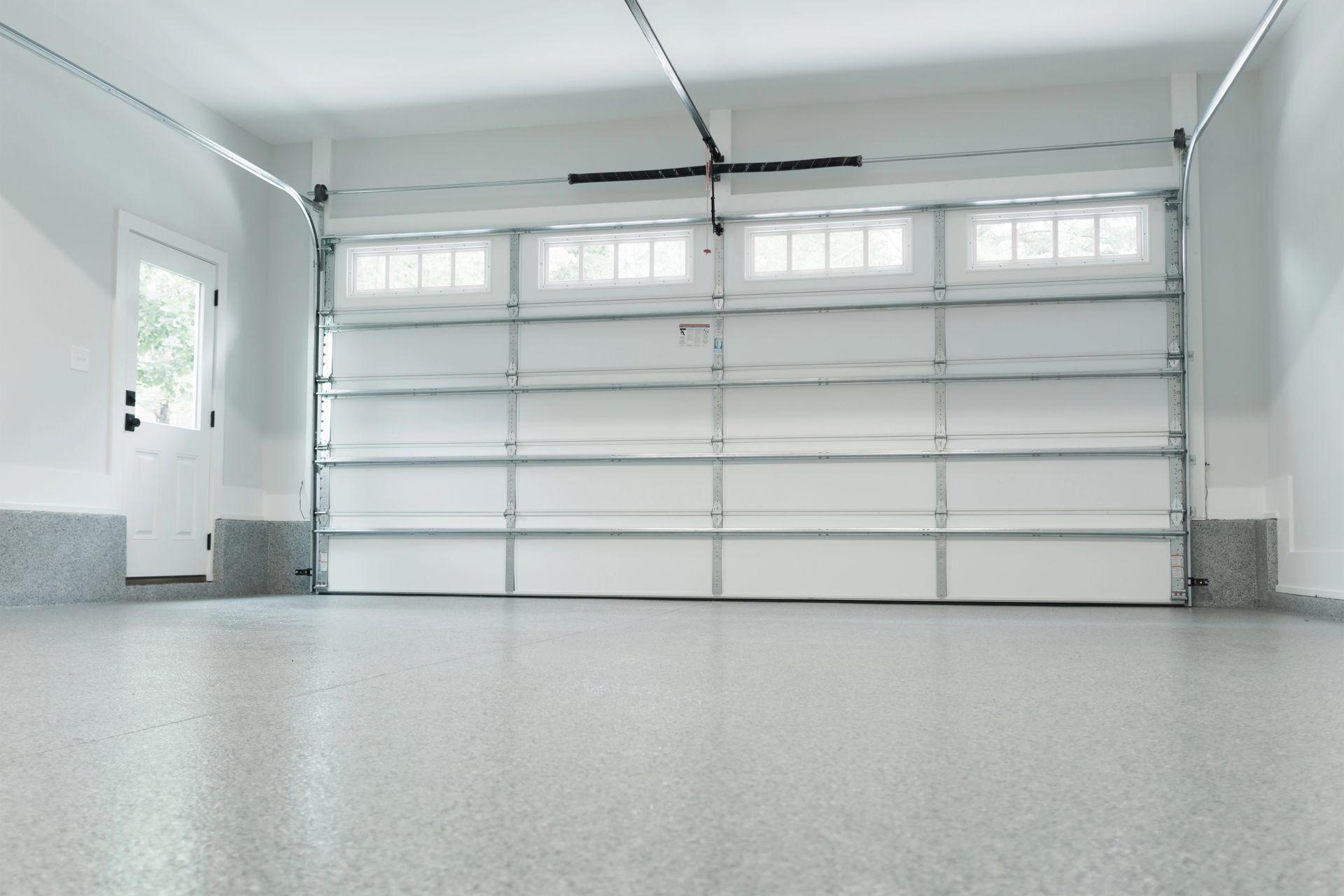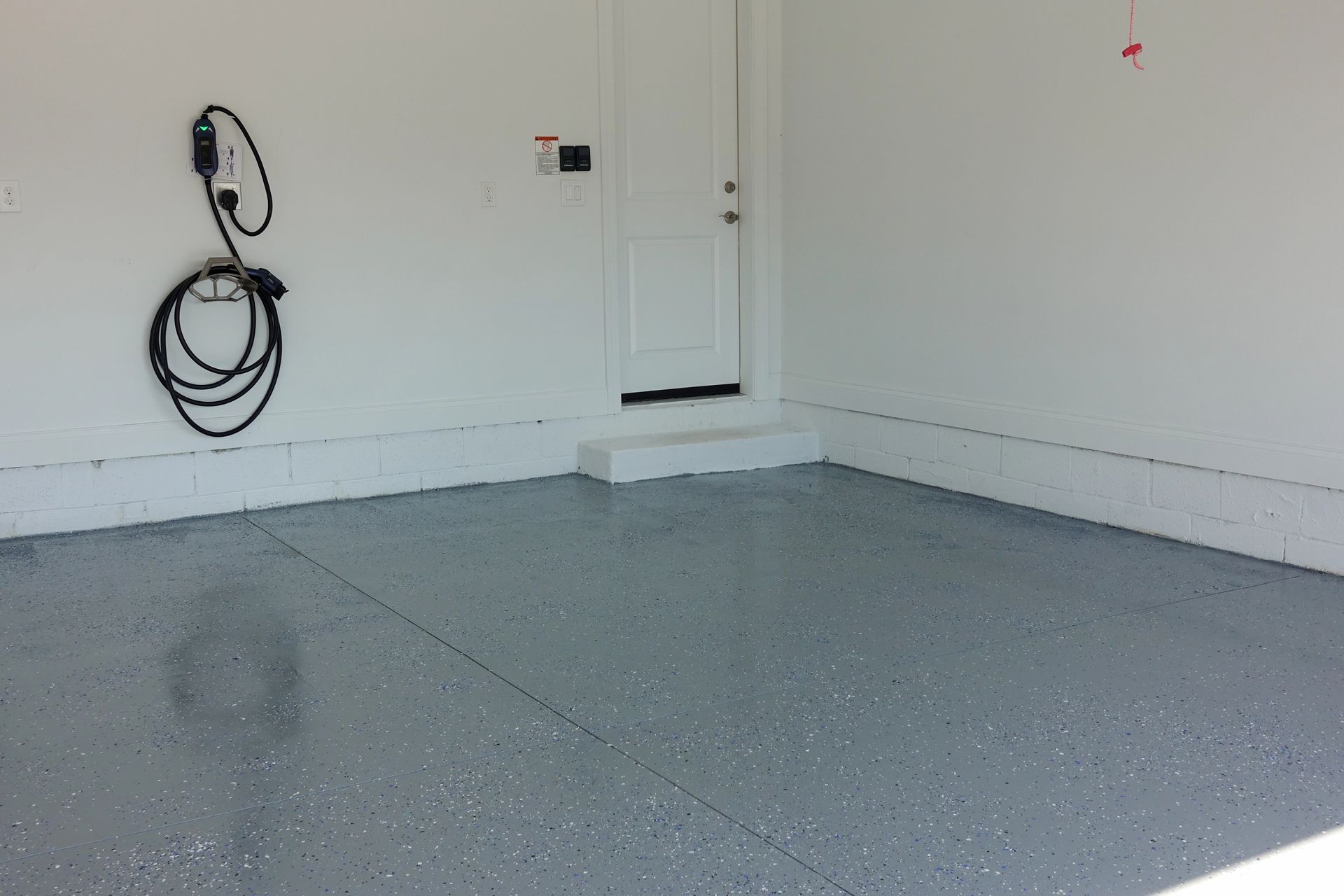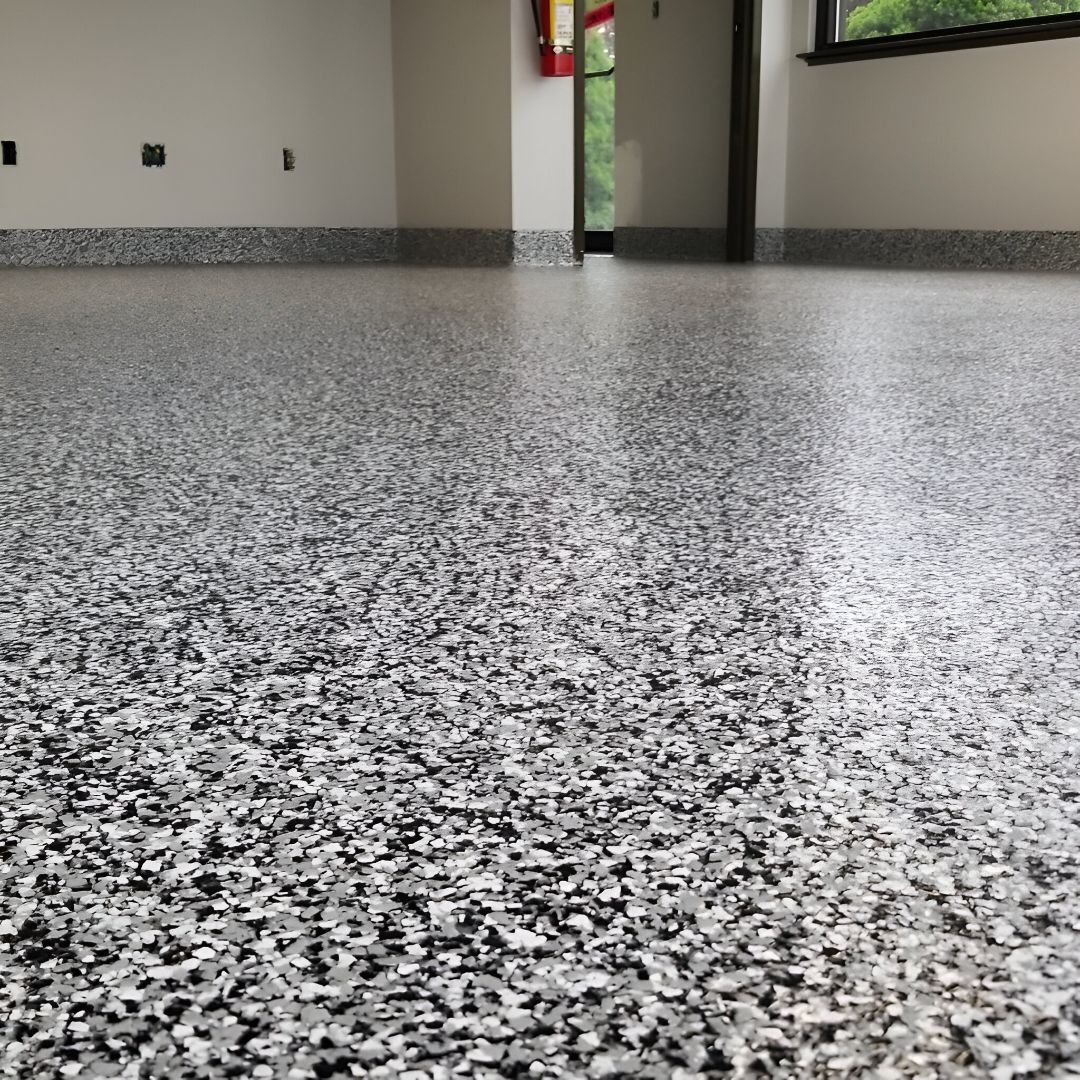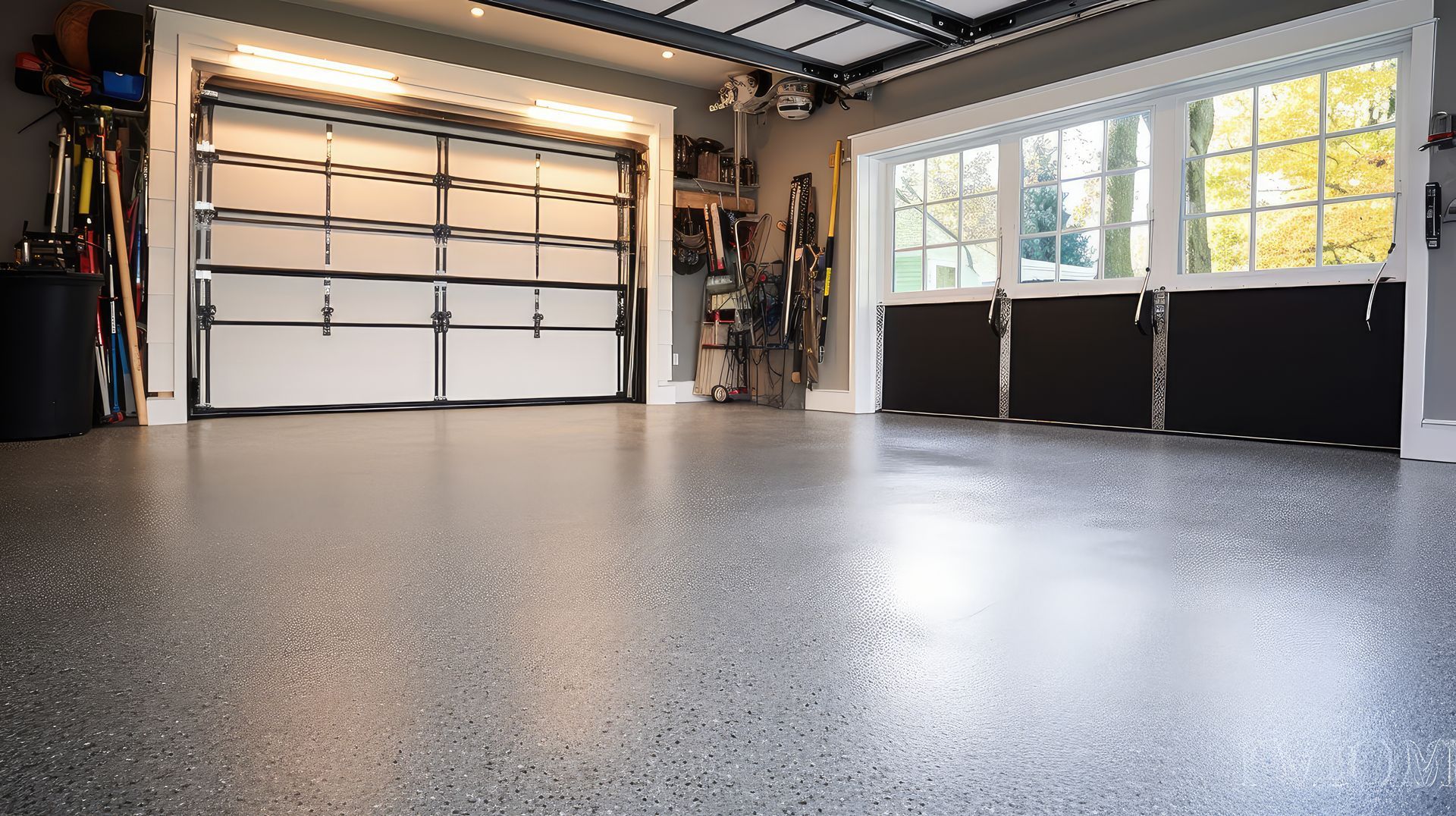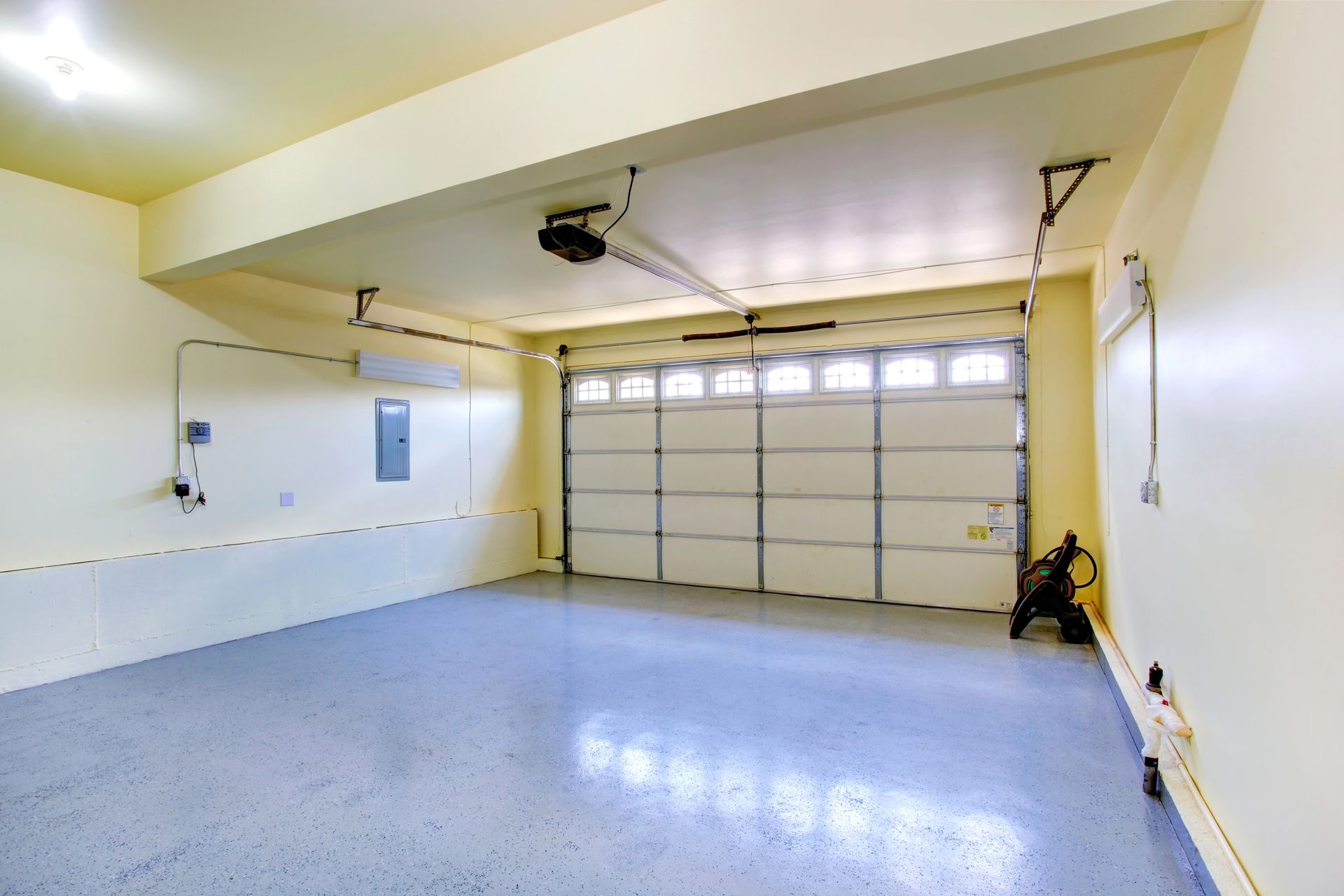Do Epoxy Garage Floors Increase the Value of Your Home?
Key Takeaways
- Epoxy floors can boost perceived value and marketability by making the garage cleaner, brighter, and more functional, which can translate into faster sales and fewer concessions.
- For long-term ownership or tougher conditions, polyurea systems typically offer better durability and appearance retention—benefits buyers notice even if they don’t know the chemistry.
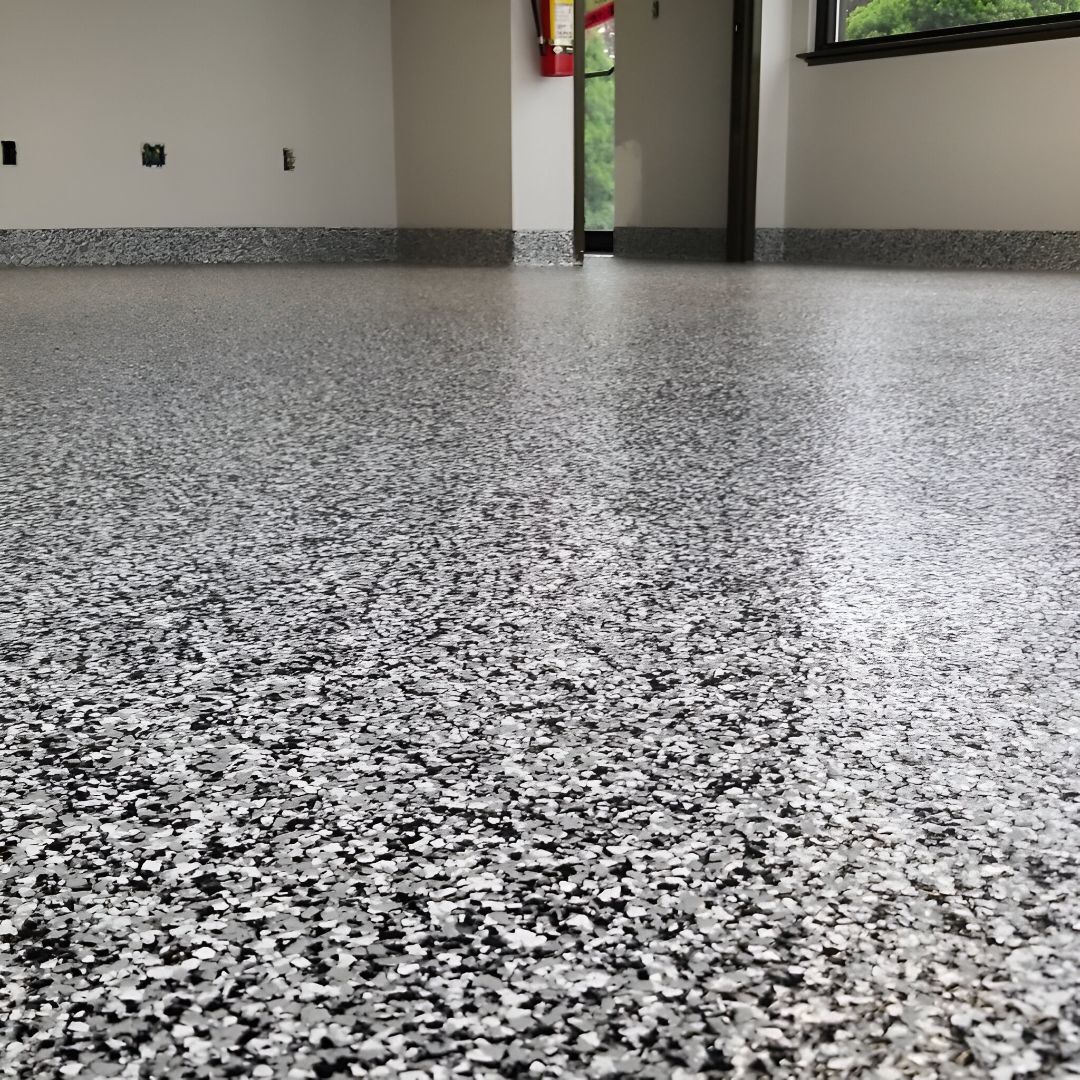
Short answer: they can—mostly by improving marketability rather than adding a hard, line-item bump to appraised value. A clean, bright, durable garage floor helps buyers see the space as finished and usable, which can speed up offers and reduce haggling. The size of the lift depends on the quality of the install, local buyer expectations, and how the rest of the home presents
What Buyers Notice in a Garage
For many shoppers, the garage is a daily entryway. A coated floor signals “well-kept home” the moment the door opens. Buyers tend to respond to:
- First impressions: Gloss and uniform color make the area feel bigger, cleaner, and better lit.
- Functionality: A coated surface is easier to sweep, resists stains, and sheds road salt and spills—appeal that’s easy to imagine living with.
- Condition cues: A neat floor often implies organized storage and less deferred maintenance overall.
These factors don’t change your square footage, but they can shift how buyers emotionally value the property and what they’re willing to offer.
Where Epoxy Helps—and Where It Doesn’t
Epoxy can be a solid cosmetic upgrade at a reasonable upfront cost. It offers decorative options and, when properly installed on a well-prepped slab, gives a durable, attractive finish. Still, there are limitations to keep in mind:
- Hot-tire pickup and staining can undercut the look if prep or chemistry isn’t right.
- UV sensitivity can lead to ambering on areas exposed to sunlight.
- Rigid composition is less forgiving if the concrete moves or if the slab has moisture issues.
If your goal is a quick refresh ahead of listing, a well-executed epoxy can present beautifully. For longer ownership horizons—or harsher use—many homeowners opt for polyurea systems for better resistance to hot tires, chemicals, and seasonal movement.
The Appraiser’s View vs. Market Reality
Most appraisals won’t itemize “garage floor coating” as added square-foot value. Instead, coatings influence overall condition ratings and the property’s competitive position. In hot markets, a polished garage can help your listing stand out against similar comps; in slower markets, it can reduce the buyer’s “deduction list” that often leads to price negotiations.
Think of coatings as part of a presentation package—like fresh paint and landscaping. They rarely change the valuation model on their own, but they help the home sell faster and closer to asking when everything else aligns.
When Polyurea Can Be the Better Investment
For homes that won’t hit the market immediately—or for owners who want the benefit now and resale later—polyurea systems often deliver the strongest long-term value:
- Flexibility helps the coating ride out temperature swings and micro-cracking.
- Chemical and stain resistance keeps the floor looking new with minimal effort.
- Faster return to service reduces disruption if you’re prepping the house for showings.
Buyers may not know the chemistry, but they recognize a floor that still looks immaculate years later—and that confidence supports stronger offers.
Tips to Maximize ROI Before You List
- Choose neutral, buyer-friendly finishes. Medium-tone flakes with light speckling hide dust and scuffs and pair with most wall colors.
- Fix issues before coating. Address moisture, spalls, and cracks. A clean, even surface reads as higher quality.
- Keep edges and steps tidy. Crisp lines around stem walls and transitions elevate the overall impression.
- Include simple care notes. A one-page “how to clean” sheet reassures buyers the floor is easy to maintain.
- Stage the space. Clear clutter, organize shelving, and let the coating be visible; if buyers can see it, they value it.
Simple Maintenance If You’re Selling Soon
Plan one quick refresh a few days before photography or an open house:
- Sweep or dust-mop to remove grit.
- Mop with a pH-neutral cleaner and squeegee dry for even sheen.
- Wipe tire shine overspray from the floor to avoid slick spots.
- Place soft pads under jack stands or heavy point loads so the finish stays pristine through showings.
Frequently Asked Questions
Will I get back every dollar I spend on an epoxy floor?
Not directly as a line item. Most of the return comes from better presentation: faster sale, fewer concessions, and stronger offers when combined with overall good condition.
Is DIY epoxy good enough for resale?
Sometimes—if the slab is dry, properly prepped, and you’re meticulous. For predictable results, especially on older or moisture-prone concrete, a professional system is the safer bet.
What finish do buyers prefer?
Neutral flake blends with a satin to semi-gloss topcoat are widely appealing. Extremely dark or high-gloss finishes can show dust and tire marks faster.
Does a coating hide structural problems?
No. It can cover minor cosmetic blemishes, but significant cracks, heaving, or moisture problems should be repaired before coating—buyers (and inspectors) will notice.
Closing Thoughts
A well-installed
garage coating rarely changes the appraiser’s math on its own, but it can make your home
easier to love and easier to buy. If you want the strongest blend of durability and low maintenance—both for daily life and for a confident future sale—consider a professional system designed to handle real garage use, with finishes that appeal to a broad range of buyers.


